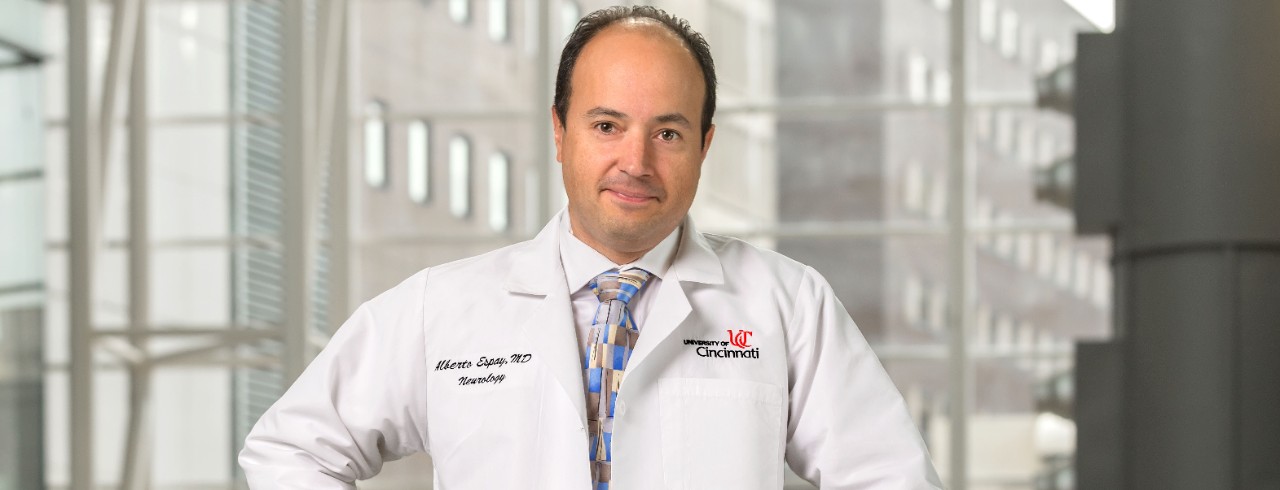
Espay wins Lancet Neurology 20th anniversary essay competition
Essay conveys what future patient visit could look like
An essay on neurology written by Alberto Espay, MD, has won Lancet Neurology’s 20th anniversary essay competition. The essay, “Your After-visit Summary: May 29, 2042” revolves around the diagnostic debriefing to a fictional patient of his new diagnosis of Parkinson’s disease, with biomedical analysis of test results informing a tailored treatment plan.
The essay is available online and will be printed in Lancet Neurology’s 20th anniversary edition in May.
Espay says he was thrilled to win the competition “because it meant that the vision of the essay, a picture vastly different than what we have been doing in caring for our patients, could gain currency with a global readership of neurologists.”
The essay was meant to convey what a future visit with a patient with Parkinson’s disease would look like.
“Rather than saying, ‘You have Parkinson’s based on my experience; trust me,’ we will be saying, 'You have something we have called Parkinson’s, but have no idea what it means,’” Espay says. “We would engage in identifying the biological drivers of each person affected, recognizing that treatments to slow progression can only succeed if tailored to those most biologically suitable to benefit.”
Espay, the James J. and Joan A. Gardner Family Center for Parkinson’s Disease Research Endowed Chair in the Department of Neurology and Rehabilitation Medicine, says medicine is about a decade away from realizing the vision of his essay. He adds the essay was inspired by work currently in progress by the Cincinnati Cohort Biomarker Program, which is trying to unravel the individual biological abnormalities of those affected with neurodegenerative disorders.
“Ultimately, the clinical diagnosis is but a human-made construct about which nature has no idea. And since nature can’t be fooled, we need to be agnostic to our labels and subtype individuals with neurodegenerative disorders according to their biology, not the classification we have used at the bedside for over a century,” he says.
Featured photo at top by Colleen Kelley/UC Creative + Brand
Related Stories
Should the FDA reconsider antidepressant boxed warnings?
January 9, 2025
The University of Cincinnati's Jeffrey Strawn, MD, spoke with Medscape about whether the Food and Drug Administration should reevaluate boxed warnings on antidepressants linking the medications to an increased risk for suicidal thoughts and behaviors in young people.
Bridging health care and legislation: How nursing expertise can...
January 7, 2025
When Rachel Baker, PhD, RN, a University of Cincinnati (UC) bachelor's and PhD in nursing graduate, joined the Ohio House of Representatives in January 2023, she looked forward to leveraging her relationship-building and advocacy skills, as well as using evidence-based and data-driven approaches to policymaking.
The mystery of what’s causing young people’s cancer leads to the...
January 7, 2025
The University of Cincinnati Cancer Center's Jordan Kharofa was featured in a Wall Street Journal article discussing the role of diet and the gut in rising levels of gastrointestinal cancers among young people.
